‘We have successfully remodeled Edo State’s health care system’
Exactly one year ago, the governor of Edo State, Mr. Godwin Obaseki appointed Prof. Obehi Akoria, a consultant physician and head of the Geriatric team of the University of Benin Teaching Hospital (UBTH) as the State Commissioner for Health. It was a difficult period as the world at large was grappling with the impact of COVID–19 in every sector of the economy, especially health. But her mandate was clear: To implement the Governor’s dream project, The Edo Health Improvement Programme and ensure that citizens of the state have unfettered access to high quality health care services, irrespective of their class, status and location whether rural or urban. In this interview with NHO, Akoria, a Professor of Medicine, took a trip down memory lane in her one year in office, as the state’s Number One Health Officer and expresses satisfaction with government’s achievements so far in its efforts to reform the state’s health care delivery system. Excerpts.
Honourable Commissioner, it’s one year that you assumed office as Health Commissioner, how will you describe the state of healthcare in Edo State today?
I came on board as Commissioner for health in the throes of the COVID pandemic, so our initial concerns were to manage the crisis and the aftermath of the pandemic. One year down the road, we saw a situation where for 13 straight weeks around March this year and thereafter, we had intensive surveillance and testing across the state, with support from our partners, for COVID-19, and there was not a single case. We believe that our robust surveillance systems can be relied upon for the data we get and to pick up early cases of diseases, especially infectious diseases. So we are grateful for that period, that span of time, during which we did not record any new cases. However, in the last three months or thereabout, we have begun to see new cases of COVID-19 in Edo state. The question we are being asked and which we may ask is what the priority diseases in the state are. Our data shows that malaria is still a leading cause of morbidity and even mortality among infectious diseases, especially among the young in our state. Among the non-communicable diseases, hypertension and diabetes are in the lead. We are in a situation where currently, we rely on routine data to make decisions about prevalent conditions that impact the health of people who live in our state. One of the things that we have decided to do is to expand the frontiers of data gathering and data analysis in assessing the health of our people. To be able to do this, we are collaborating with partners in Africa, the World Health Orgainisation, and others outside Africa to strengthen health systems research so that routine data reporting and data-driven evidence become the bedrock of policy and healthcare interventions in Edo state.
Will you say Governor Obaseki’s health programme for the state is on course? Specifically, what are these programmes, and what has been the progress made so far?
Yes, I will say categorically that the Edo Health Improvement programme is on course. With the advent of COVID-19 in 2020-2021, we suffered significant setbacks. However, we have gotten back on track. We are ensuring that the milestones that have been established and set for improving health care and the health of our people in Edo State are on course. As you are aware, the Edo Health Improvement programme was launched in 2016, and there were definite pillars.
Amongst them were Primary Health Care and the Edo Health Insurance Scheme. Regarding Primary Health Care, what the Governor is saying, which the Ministry of Health and our agencies are driving, is a paradigm shift that requires redefining, rebranding, resourcing, and upgrading the primary healthcare system as the gateway into the health sector. What does this mean? Over time, primary health care centers have come to be known as centers where the poor and the indigents walk in to get rudimentary health care. However, we are driving a revolution in which we are rebranding, resourcing our primary health care system, and training our workforce to understand that primary health care is not health care for the poor. Primary healthcare means bringing healthcare closer to the people; redeploying human, infrastructural, and economic resources to see that people get access to quality healthcare close to where they live and work. We are challenging existing paradigms and practices. We come from a background where the stereotype has been that primary health care is for immunisation, health talk, and for a few women who may choose to have their babies in PHC centers. The new paradigm is this: Primary health care proposed and practiced by the Government of Edo State and the Edo State ministry of health. The practice democratizes healthcare. It is a practice that factors health promotion which, first and foremost, requires us to support the people of Edo State to take ownership of their health and be able to make decisions that impact their health for their good; to be participatory in the health care that they receive. In the last one year, we have activated about 180 Ward Development Committees in our 18 local governments. The Ward Development Committees work closely with the leadership and operators of primary healthcare in their locations to see that healthcare is available and affordable for people in their respective localities.
Regarding primary health care, the Basic Health Care Provision Fund (BHCPF) has come in a timely manner to provide economic impetus to see that we are on course in achieving our primary health care goals in the state. As you are aware, the National Health Act requires that the Government of Nigeria commits at least 1% of funding from the consolidated revenue fund to primary health care. As we speak, in Edo State, two gateways are already active: The Primary Health Care gateway and the Health Insurance gateway.
Using our data, we have found in Edo state that as of March, we had about 2,044 people registered in the BHCPF gateway. As I speak, that number has increased to around 30,000 people. The BHCPF Funding is funding that provides free care to people under the age of 5 years, pregnant women, older adults, and what people may call the poorest of the poor. When we took the pain to reach every one of the initial 2,044 enrollees, we found that only 130 (or thereabout) were even aware that they had been enrolled in this programme. Their reasons were that they were often called to provide data and were unsure whether it was for real. We are saying that the people can trust the Edo State Government; the ministry of health can be trusted. By that singular intervention of calling every one of the enrollees, we saw an upsurge in the utilisation of this funding gateway. However, we are still very far from where we want to be. We are counting on the civil society groups, the media, our ward development committee members, politicaladvisers, and well-meaning Nigerians to see that people in their localities in Edo state who have been enrolled to benefit from the basic health care provision fund utilize this gateway to access quality health care. All this while, I have been talking about just this one pillar in the Edo Improvement Plan, and I have harped on the second pillar, health insurance. Achieving universal health coverage is a non-negotiable goal for us in Edo State. For us, a situation where people have to spend out-of-pocket for every healthcare encounter causes much concern. The Governor is big on seeing the gaps between what the Government is providing and what the people can do in respect of their health care is bridged by the provisions of health insurance. So we have a health insurance commission working to improve and increase enrolment from not just the formal but also the informal sector. There are also provisions for specialised packages for those who may have health care needs that go beyond what we call the basic health care package.
“Yes, we focus on underserved people, people who cannot pay for themselves, and those living with Comorbidities, Hypertension, Diabetes, Osteoarthritis, and Chronic Obstructive airway disease.”
Another thing we are doing is providing true oversight for all the health agencies in the state. These agencies are the hospital management boards (that oversee our 33 hospitals), the Edo health insurance commission, and the Edo Primary Health care and Development Agencies which have been my focus in the last twelve months. Clearly, it is not business as usual in the Edo State health sector. Indeed, it is business unusual. I believe Edo state is the only state in this country where we havehealthcare leaders meeting twice every week, sometimes three times every week, since I became Commissioner. Initially, we met every single day.
However, as the scourge of the COVID-19 pandemic reduced or plateaued, we began to meet twice and then three times a week. I lead a team of Director Generals, the Executive Secretary of the Health Insurance Commission and Primary Health care Agency, the Permanent Secretary Ministry of Health, the Permanent Secretary Hospitals Management Board, the Medical Directors in the big hospitals, our partners, and programme managers. We jointly proffer solutions and hold each other accountable to work, talk, and provide feedback on improvements in our respective MDAs. We are reviewing data; we are talking about prevalent health concerns. We are talking about Lassa fever, malaria, tuberculosis, and HIV. These are the things that are happening behind the scenes. We are building the capacity of the health care leadership and team spirit and are very clear on our vision, mission, and core values as a health sector. These have been going on behind the scenes these past twelve months. We have made much progress in human capacity development, targeted oversight, data-driven policy implementation, transparency, and accountability. The dividends are already springing out. One big thing I am glad about in these last twelve months is the focus we now have on regulation in Edo State.
How will you say these programmes have impacted the lives of Edo citizens?
In Edo state, we have well over 4 million people, and I get feedback from just a few of these. Some of this feedback is positive, but as you know, a lot of it is not positive. I believe that people see a change, but expectations are reasonably high. People are seeing a difference in the work ethics of the ministry of health and health MDAs staff. I have several papers from people who send encouraging messages. I just got one from one of our senior Government officials. She went to a pharmacy and was denied service because she was asking for a prescription medicine over the counter. She had to go back and get a prescription from a doctor before they dispensed the medication. That is one example of how our various interventions are impacting. We are focusing on regulation. It is no longer business as usual in Edo state. We have an unusual healthcare business approach to the work we are now doing to improve health and the quality of healthcare that our people receive in this state. Our focus has been on healthcare Governance primarily. We have prioritized healthcare regulation and what you just heard is the feedback that speaks to the regulation of the pharmaceutical space. I have personally taken this campaign outside Edo state to the regulatory agencies in Abuja. I’m so glad about the way I was received by the registrar of the Medical and Dental Council of Nigeria, the registrar of the Pharmacists Council of Nigeria, and the registrar of the Nursing and Midwifery Council of Nigeria. I spoke with the registrar of the Laboratory Science body, but we couldn’t meet. It has just been so heartwarming to see that at the National level; I have been assured of support as we drive healthcare regulation in the state. The professional associations in the state have also given their support. We are seeing the commitment and the effect of this commitment on how work is done. A lot will be happening in the next couple of weeks, and you will be surprised at how much impact we will make.
”There is so much more that we are doing in the field in the primary healthcare space. Just watch out; in a couple of months, you will see the face of the new PHC in Edo state. The way we dream of it and want it to work is one promise we are making to the Edo people.”
People sometimes call me out, “where is the Commissioner for health? Is she not aware that this is happening here?” So I must give you a balance; yes, people express concerns about the dearth of human resources, and the Governor is not resting. As I speak, recruitment is ongoing; CBT exams were done today, but we are also feeling the throbs; we are experiencing the throbs of a massive brain drain, especially the healthcare workforce.Our programs cut across Insurance, Primary care, and Secondary care. We are seeing more and more people accessing care using the provision of the insurance gateway, and we also see more and more community participation through the activation of the Ward Development Committees. We are seeing our healthcare staff engaging more with the community.
What are the challenges you have faced so far since you assumed office as health commissioner?
My biggest challenge has been the lack of human resources at the Ministry of Health in our agencies, especially the Primary Healthcare Development Agency and the Hospitals Management Board. We have a yearning dearth of human resources. We have inadequate numbers of nurses, doctors, and other professionals. The good thing about this is that the Governor is not resting. As I said, we have advertised, and CBT exams are being done, but my pain is to have heard today, for example, that only twenty (20) doctors are scheduled. What are 20 doctors compared to 100s (hundreds) of doctors we are looking for? We need several hundreds of nurses, pharmacists, and so on. But we will work with what we have, we will now have to use creative ways to bridge the human resources gap, and this is where telemedicine, for example, comes in. In the coming days, we will see how much more we can do with our limited human resources, so that has been my biggest challenge – human resources for health. The need for training and retraining our healthcare workforce is another challenge we are currently addressing. We are collaborating with partners, and we have programs lined up that will help strengthen the healthcare workforce, especially at the ministry of health, the Edo State Primary Healthcare Development Agency, and the Hospitals Management Agency.
The Government has introduced telemedicine and some other novel programmes within this one year of your tenure. Could you please tell us how these programmes work, especially in the rural areas and among the less privileged?
Telemedicine is novel, especially since we started using video conferencing. We are the only state in Nigeria that has achieved this feat. There are several App-using E-Health providers in the country but Edo state is the pioneer. We started in April in collaboration with the Association of Nigerian Physicians in the Americas (ANPA) project, the biggest-ever medical mission this country has seen and over 10,000 people benefited. We have an uncommon commitment from Dr. Phillip Osehobor, the telemedicine lead on the ANPA side. I am impressed and amazed at the commitment of the volunteers from the Edo State Government’s side week after week. No one is complaining, sometimes sacrificing weekend after weekend when we were still running the service on weekends, seeing patients, providing care, and providing support even outside the telemedicine hours- We appreciate this sacrifice. Our collaborators in America donate the medicines given to patients who access our telemedicine services. They ship here, and we take delivery and hand them out to our patients at no cost.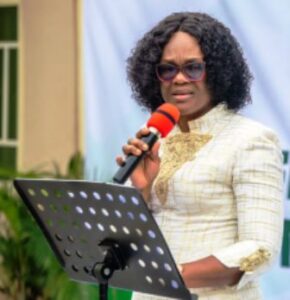
We are looking to scale to Edo-central and Edo-North for the rural areas in the coming year. Our focus is to keep the service in the PHCs to strengthen this paradigm shift and reset our mentality that “quality service is not meant for only tertiary centers’’. So we are routing this telemedicine through PHCs. By the grace of God, in the first quarter of next year, we will have activated another facility in another senatorial zone to serve the less privileged. Yes, we focus on underserved people, people who cannot pay for themselves, and those living with Comorbidities, Hypertension, Diabetes, Osteoarthritis, and Chronic Obstructive airway disease. Those are the people we focus on. Quite a number of our patients come from outside the Benin metropolis.
Edo State has been ranked first among all other states in the nation’s immunisation programme. What is the level of acceptance and coverage at the moment?
Edo state was actually ranked 1st among the south-south states just to correct that. At the time of this ranking, we had over 52% coverage for routine immunization but that is not where we want to be by any stretch of the imagination. Still, we turned out to be the best among other southern states, and we are grateful for that. I am particularly grateful to the Edo state Primary Healthcare Development Agency staff, which are foot soldiers in the hard-to-reach areas. Insecurity has contributed to this level where we could have done better, given the zeal and increased staff. Also, there have been insecurity-related challenges, so some areas have not been reached.We are doing better with routine immunisation than with COVID-19 Vaccination. Let me, at this point, remember to thank our partners, the partners from the World Health Organisation, Africa CDC, AFRINET, UNICEF, USAID, and other partners in the state. The support has been phenomenal, we are like one big family, and we, as a state, appreciate all they do to support us in our immunisation and other programs, back to the issue of acceptance and immunisation coverage. For COVID-19 Vaccination, we have had a lot of challenges in Edo state, and we have tried to understand the dynamics of the resistance. You know, there has been much more than vaccine hesitancy in Edo state, and if you look at the chart, you will see that we have done well in that regard. Fortunately, our interventions are working, and we are beginning to pick up again. More and more people are taking the message in and getting themselves vaccinated, especially with the roll-out of the scale 3.0 program.
How do you intend to sustain the coverage?
Two thrusts mainly: To keep the staff motivated and to keep engaging with our people (the public). To get our people to trust that we will not provide for them anything that will not do them good.
We believe that with our people working out there on the frontline and with more trust, hoping that security improves, our immunisation coverage will improve.
Obviously, you have in your first year embarked on planning and generally putting things in place towards the implementation of the Government’s program. What should we expect in the coming years?
There is a lot to expect. First and foremost, we are focusing on our human resources capacity building. Alongside that, we are coming all out to work with owners and operators of healthcare facilities in the private sector to strengthen the regulation of that sector. For us in Edo state, regulation is no longer going to be about paying fees; we are not interested in collecting monies. Standards, accountability, and accreditation will drive regulation as we advance. We are focusing on these aspects because quality healthcare cannot happen in an unregulated space. Why did I mention private facilities? Because a large portion of our first point of call when people fall sick are the private facilities. We have engaged the services of PHARM ACCESS Foundation Nigeria, a dutch-based Not-for-profit foundation. We have been working assiduously, developing standards. In the next couple of days, our practitioners will receive letters from us. We have also been building the ministry’s website to engage more proactively in a broader base with the public (both within and outside Edo state and Nigeria) towards improving healthcare. Very importantly, we are expanding the frontiers to create feedback channels that enable us to get real-time feedback on how we perform. That is one of the things we have put in place in most of the Hospitals, if not all, in Edo state. We now have banners in Government owned Hospitals, telling the client, “Please, if you are dissatisfied with the services you get, call this number”. We have desk officers who collate the report that we get daily, and we provide them feedback. We will intervene as we get this feedback. We are mindful of the quality, type, and pricing of our medicines at our public healthcare facilities which is why we have done a lot of work to be sure that our medicines are not overpriced and that our clients continue to get quality medicines.
In the coming years, we will be engaging in health systems research. We want to know about the health status of the Edo people and what ails our people, using our own scientific methods to generate data that will inform our policies and our interventions. To do this, we also work with partners outside the state and the country to drive health system research. There is so much more that we are doing in the field in the primary healthcare space. Just watch out; in a couple of months, you will see the face of the new PHC in Edo state. The way we dream of it and want it to work is one promise we are making to the Edo people.
We are strengthening insurance oversight, and the state oversight committee is not resting to be sure that while enrollment is going on, we are assessing coverage, utilisation, and care experience. We are committing to the people of Edo state with every sense of responsibility that we are here to serve. I, as a person, consider it an honour to have been appointed Commissioner for Health, at a time such as this, under a visionary leader who is courageous enough to challenge the status quo and to say that if we must get different results, we must do many things differently. As a person, I am committed to improving the provision, the regulation, and the experience of healthcare in Edo state. I remain open to receiving constructive feedback that will enable the marvelous team and me in the MDAs in Edo state to work and serve our people better.We are open to critique because we want to improve, and we welcome constructive criticism. We are appealing to the people of Edo state to work with us because we are here for you. We are working for you, and together, we will take healthcare in Edo state to an enviable height by the grace of God. Thank you very much.



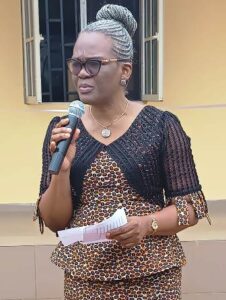
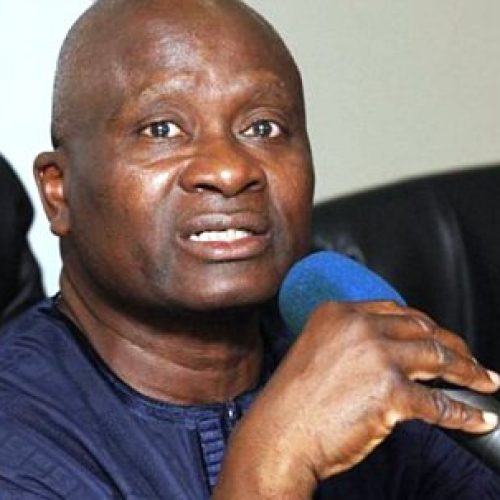
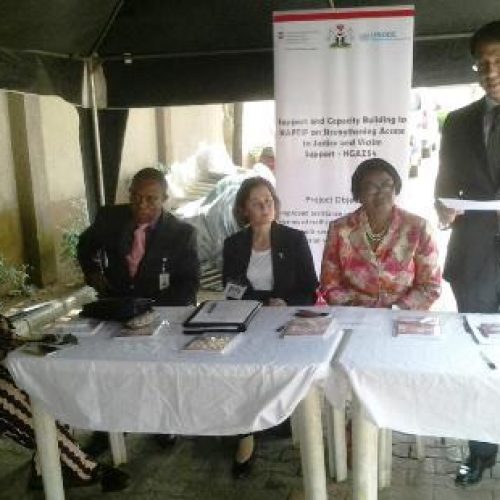
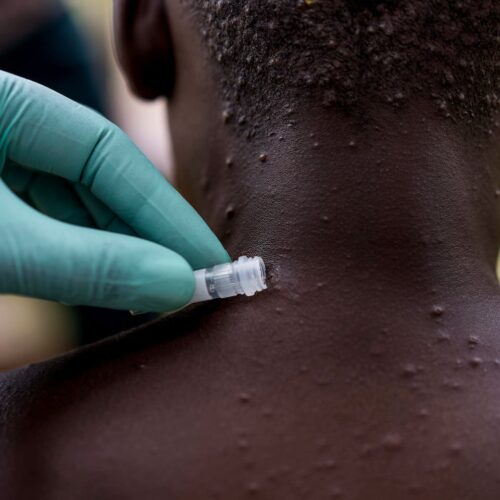


0 Comments
No Comments Yet!
You can be first to comment this post!